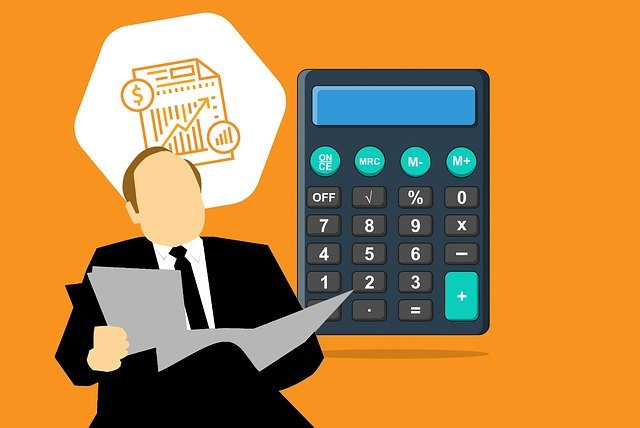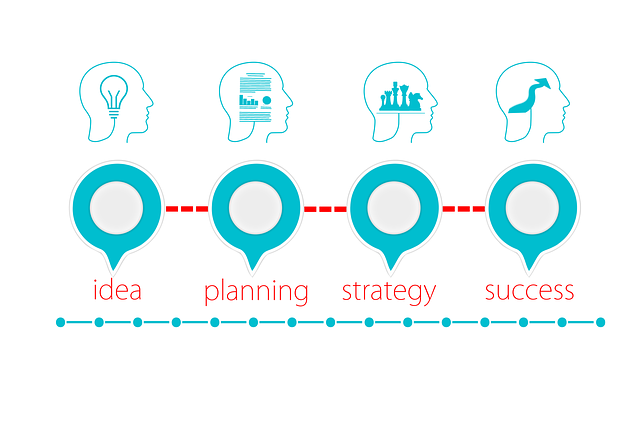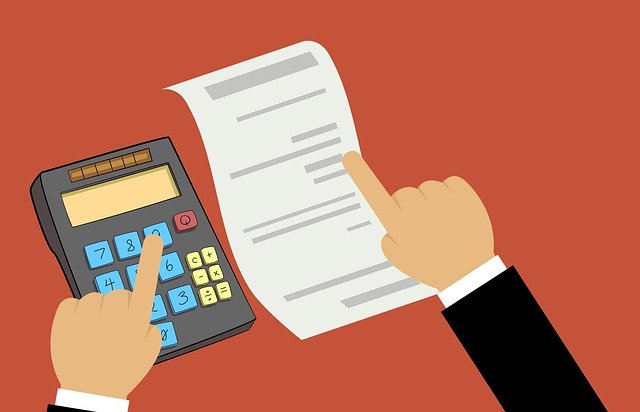Christan Hiscock from Kardia Financial Group and Irfanali Moledina from RMI Professional Corporation got together to talk about why is accounting so important in business, about entrepreneurship, proper tracking of numbers, and other topics related to running a small business the right way.
Watch the video or if you prefer reading, follow the transcription below. Have fun!
What does it take to be a business owner
Christan
On today’s Finance Friday we are going to talk about what does it take to be a business owner and also the taxation, tracking, and things like that and how to do them successfully.
A lot of people start small businesses, they can be freelancers or contractors and they are lost a little bit on how to get started and what being a business owner looks like, and how it works.
What we’re wanting to talk with Irf about today is, for example, when’s the best time for you to incorporate your business or how should you track things. We have titled this episode “Accounting like a boss” and we’ll talk about freelancers and self-employed people and what are some of the decisions they need to make on their entrepreneurial journey.
So, Irf, maybe share with everybody a little bit about your entrepreneurial background and what makes you excited these days and then we can jump into some questions.
Irf
You bet. I like to consider myself “The entrepreneurial accountant”. My whole life I’ve been an entrepreneur first. I went to the University of Calgary and very quickly made the choice to take the business program. From there I had to decide if I wanted to go into accounting or finance because I knew I was a “numbers guy” and the more I thought about it I wanted more into accounting. The reason why is because accounting is the foundation of any business and as an entrepreneur, it’s crucial that you understand your numbers and track things properly.
And from there throughout my university career, I always had some small businesses but eventually, I finished my designation and started up RMI. We’ve been running this practice now for over 10 years and we’ve got a good team of over 15 people and I still have some other businesses as well. Purple Frog is another big company that we have where we’re doing all-natural hand sanitizer and some variety of other products as well, so I sure keep my entrepreneurial passions alive.
What entrepreneurs need to know about accounting
Christan
I have called Irf an entrepreneurial accountant for a while because he’s been there, done that. For you as entrepreneurs what’s super important is that when you’re starting out to have an entrepreneur that understands what it really means to be a contractor or self-employed and what it actually means to run a business as an accountant.
A lot of accountants out there are just “numbers” people who don’t understand the reality of what it’s like having tight cash flow some months and your ups and downs and changes in your cycle on a constant basis.
Why don’t we jump right into it and ask the first question: “What is the number one thing that an entrepreneur starting out being their own boss needs to understand about their accounting and tracking their numbers?”
Irf
The most important thing is to start early and stay on regularly. The number one issue I see from self-employed contractors or freelancers is they come to me after 2-3 years and say, okay I need to get my accounting done because CRA is on my case.
The problem is they’ve not kept any money aside for GST. They also don’t know how much money they’ve made, they don’t know how much taxes they owe and all this ends up putting you years and years behind just because you didn’t do it from the get-go. And now you’re playing catch-up and the numbers can add up very quickly.
So, the most important piece is to get on bookkeeping from the day you open your business. Track your receipts. Make sure you stay up-to-date, know your tax deadline, and stay on top of it in general.

Know your numbers so you can grow your business
Christan
That makes sense. I always joke and reference to the issues I had when I came to you five years ago and it was chaos 😊
When you’re starting off as an entrepreneur you have a business account. All of the sudden personal stuff goes in the business account and business stuff goes in your personal account and you’re not tracking it properly. I did it for many years and it took us about a year or two to clean up the books. Now I do understand the importance of it.
Being in the finance industry and running multiple companies under the Kardia financial group banner we keep our books down to literally the penny of where money is going in each of our divisions. It’s super important and I’m glad that you said that – know your numbers early, get it going so you don’t have chaos in the future. Have you seen that in business that people that have clean books and clarity are able to grow faster and expand faster?
Irf
Without a doubt. It gives you the ability to make the right decisions and you have data behind it to support it. And I know the challenges. When you start a business the accounting and the bookkeeping is the last thing you want to be doing.
It is not sexy, it’s not exciting, it’s not putting money in your bank. What people don’t realize is even though it’s an extra cost and takes some time away from the business, if you don’t do that properly today it’s going to cost you ten times more than anything else you do down the road.
It’s by far the most crucial thing. If you get on it right away, stay on top of it, and start from day one it’s really not that much work.
Sole Proprietor vs. Incorporation
Christan
I think it’s good to start looking at this with a different mindset – that it actually is awesome and it is sexy and it is great to know your numbers!
When you look at people in a relationship, for example, when your partner is confident and excited about life there’s an attraction there. Well, it’s the same thing in your business. If you know your numbers you know where you’re going, you know where you’ve been and that is very attractive for you. Looking at your business being excited for what you have rather than chaos and not understanding because then we breed chaos in every aspect of our life.
It’s just like when you look at somebody’s car, is it a messy car? Or their bedroom? It’s the same thing in your business, we got to make sure that we are clean on the books and start there. Of course, not everyone is as excited about money and numbers as me and you are, but I’m just enjoying the process.
I think there is a lot of confusion in deciding to be a sole proprietor or be incorporated or just run the business in your own name. What’s the difference or what would be the guidelines or thresholds from the accountant standpoint, if there are any?
Irf
Anytime you start a business, and it doesn’t matter what you do. If I go tomorrow and start shoveling somebody’s sidewalk and get paid $10 for it, I started a sole proprietor business.
Sole proprietors are very easy to start, it doesn’t take a lot of work, you automatically start as soon as you start doing any type of exchange for money. They are much cheaper to run because you do the tax filings with your personal taxes, CRA doesn’t care about your assets so much, they just care about how much money you’re actually making, so your revenues and your expenses.
The downside to it is two things – the first one is the tax side and the second is a liability. This is where we start to move people into incorporating. If your business has any type of liability you may want to incorporate for protection. If you’re a sole proprietor and somebody comes and sues you, they’re going after your personal house, they’re going after your personal car, they’re going after what’s in your personal bank account. They can go after all your personal assets, so if you incorporate, you’re separating that liability between the company and yourself. Which is the first reason a lot of people are incorporating. The second is a tax standpoint. In Canada, our personal tax rates are some of the highest taxes you pay.
Here in Alberta, anything under half a million dollars you’re only paying 11% tax. If you’re able to keep money in your business, if you’re able to take profits and reinvest in your corporation then you want to be looking at potentially incorporating as well.
What happens is if somebody makes $100,000 but they only need $50.000 to live off of, the other $50,000 can be invested back in their corporation and you’re only paying that 11% tax on it.
Christan
That’s brilliant. So if you’re in a business that has any kind of potential liability, you’re best to incorporate right from the get-go because then you’re protecting yourself, your family, and protecting your legacy, right?
The last thing you want is if you’re, for example, in the construction business or renovation business and somebody slips and falls and hurts himself. It can be completely not your fault, you did good quality work but they can still come after you for whatever reason and they will be coming after you personally, rather than your business. I really like that differentiation.
And then also the people who are making a lot of money, I was just talking to the financial advisor, once you start getting to $80,000 and plus you should run it through the corporation so you can have some tax savings for your business.
Irf
Absolutely. There’s a lot of different structures that end up saving people ton of taxes.
Good investments that people can put money in to help them save money if they’re investing through their corporate structure and different things like that. There’s a lot of different strategies you can use. Once you start to generate like you said, that $80,000 to $100,000 in revenue it’s something you really want to start considering.
But if you have any type of liability, even if you got $1,000 of income you may want to still consider incorporating because of that potential liability.

Building a long-lasting business
Christan
Let’s get into that nitty-gritty stuff. What businesses that you’ve done a lot of bookkeeping for, a lot of accounting for, and strategic planning for, are doing well even from start off? What are they spending their initial money on to make sure they build a long-lasting business?
Irf
Like I said, one of the most important pieces is to set a good foundation for your business.
Many times people start their own business and they themselves are working in the business, which is great, but you want to make sure that out of the money you’re generating, you’re keeping some aside for yourself because you are still working.
Secondly, you want to make sure you’re tracking your numbers, so you got to be spending some money on bookkeeping and accounting and making sure that’s staying up-to-date. And then as your business grows you start to look at spending money on marketing and those pieces to expand it further.
What we typically see, though, with contractors and freelancers is they are providing a service, so it’s just themselves. They find a good opportunity out there, they might have a couple of customers that are good friends and they know they’re going to take on with their services. And right off the bat, you got a good foundation of some income coming in.
It’s a matter of making sure you’re doing everything else on the backend to establish a good foundation for that company. Then you can focus on growth and moving it forward.
Christan
That’s a good reminder. Irf has a lot of experience with hundreds of companies and the ones that spend the time building that foundation are the ones that actually survive through different times and circumstances.
We are in crazy economic times right now with the pandemic that’s been so hurtful and unfortunate for so many people personally and also business-wise. Those that really understand their numbers and construct things better are able to last through times like these a lot easier than those that just focus on a marketing aspect.
The problem with a lot of entrepreneurs is that we just try to adjust, focus on the sales and bringing in more leads. We might be really good at marketing but the problem is when the leads dry up and we don’t understand what that means for a bottom line. Then we can be going backwards really fast, so we need to make sure we’re in the plus.
And that’s something I’ve learned from Irf and his team. Running multiple businesses, that I’m part of, and all the companies we have underneath the Kardia banner, we need to understand the numbers of each of those companies so we can adjust things and make sure that we’re on the right track moving forward.
Irf
Sure, and as you said, right now we are in crazy economic times but companies that create that foundation end up coming out of recessions ahead.
The reason for it is that companies that are poorly managed are the ones that end up closing and all that business ends up going to those well-managed companies. Really good companies actually grow more during a recession than they do during normal economic times.
Christan
That’s very interesting, and that’s because they spend the time and the energy making sure that they have their financial stuff put together.
Irf
Absolutely.

Best Accounting Software
Christan
One of the questions I would have is about software. What are some of the recommendations you would have for solo entrepreneurs, startups, or small business owners?
What kind of tools should they use to track all the things you’re talking about?
Irf
I always recommend QuickBooks. We use it in our practice as well. It’s very easy and user-friendly.
A lot of people have probably heard about Sage, which is another common accounting software.
The reason I push people more towards QuickBooks is that you don’t need to be an accountant to understand it.
You just need to understand your very basic transactions – what does it mean to write a cheque, what does it mean to receive money, what does it mean to invoice.
QuickBooks breaks it down in a very simple form. You can use or QuickBooks Desktop or QuickBooks Online which a lot of people are moving towards because it’s available through your phone anywhere you go and there’s a lot of good features in there.
The other thing to consider is if you’re starting as a sole proprietor and you’re just doing a little bit of work on the side and you don’t have liability, you can even get away with just using Excel, which saves you some cost.
You have to make sure you’re still tracking your income though. Track your expenses too. You can create a good spreadsheet that does that for you and then you don’t have any other additional expenses with it.
If you’re doing something very basic you can use Excel but if you’re doing a bit more and you want to grow then having that software established from the get-go is nice because you can start to see comparison reports as you get into years 2, 3, 4, 5 in your business.
Christan
So what you’re saying is if you’re starting a business and have a really tight cash flow you can start with Excel and you can import that data into QuickBooks later.
If you are building something long-term though, QuickBooks is not that expensive. It is around $20 a month (depending on chosen plan) and you have a robust tool that can track your business. For service-based businesses, you can run your quotes on there, you can take payments from your clients, and there is a lot of other things you can do within that platform. We use it basically for all of our businesses and it’s pretty powerful.
On the point about the tracking of stuff, there are also your receipts. I know we’ve built a pretty good system for what we do at our company with your help. What would you suggest for tracking those receipts?
how to organize receipts
Irf
What people ask me a lot is “Do I need to keep the actual physical receipt or is my credit card statement enough?”.
If CRA comes back to do an audit they do ask you for your actual receipt, so it’s good to keep them. From day one, as soon as you have your first receipts, you can create a system depending on the type of person you are. If you’re more paper-oriented and you want to do just a typical filing system you can set it up by vendor or by date.
We don’t have too many different vendors here at our accounting firm, so what we do is we have one miscellaneous one, but we track it by month so if CRA ever came back and asked us what did we do, we go to that month and we find the receipt. It’s easy and accessible.
A lot of people like to move online now and when you’re going online you can take a picture of that receipt and save it. Save it in a Dropbox folder, make sure you name it so you know what it’s for. Don’t forget the date because at the end of the day the most important piece is you need to be ready if CRA comes after you or are your accountant comes back or somebody comes back and says what was this receipt for you want to be able to access it very easily. That’s the key.
Christan
Here is a tip for you guys on what I do for all of our receipts. I can search any day of any year of any type of receipt by simply putting in the date or even the amount.
- I start with the date of the receipt and I go by the first two numbers of the year, the first two numbers of the month, and then the two numbers of the day. And the reason why I do it in this order is that it will stack from the newest to oldest or oldest to newest in chronological order.
- Then I continue with a dash and the amount with no number symbols plus the cents and if there are no cents I just put .00 to keep the format the same.
- Then I add another little space and put down what it’s for. What was the receipt for – was it a meal, was it accounting software, was it whatever it is, just write it down.
Now, in the future when the CRA or accountant asks “Hey what was this? You spent $29.55 on something.”
Then I can literally just type in $29.55 and make a search on my computer or Dropbox, Google Drive, or whatever you use, and bam, it pulls it up! Super simple to do and you can do it right from your phone. You just take a picture, turn it into a file, name it right away and you’re all set.
When we look at that from the business and the tracking point of view what’s the next level when it comes to accounting and tracking? After we’ve got the foundation, we use the bookkeeping software or Excel, what are the next steps people should take when it comes to tracking their finances?

Irf
You want to make sure you’re doing what we call a reconciliation every month. Typically you’ll get your credit card and your bank statement at the end of every month. You want to reconcile that, which the systems are really good at helping with, to make sure you’ve accounted for all your transactions.
As your business grows you want to make sure you’re also automating the transactions. If you’re paying insurance, for example, that comes out automatically every month. Make sure those are being recorded.
A lot of times what happens is that start-up business owners rely on their bank to say okay, I’ve got this much money in there, I can pay all these bills. What’s more important and if you’re tracking your books properly you can rely more on your actual bookkeeping software to tell you how much money you have because if you give somebody a cheque today but they don’t cash it for 2 months then that money is really not in your bank account. But your bank will tell you it is.
So, keeping reconciliations up-to-date and making sure all your transactions are picked up that’s the next key, for sure.
Once you have that in place you can start to analyze your reports, you can do month over month comparisons, you can do your year over year comparisons. You can start to see if you have seasonality in your business. Are you busier in the months of February and March vs November and December? All this data you can actually start to analyze may help you make better decisions as you grow your business going forward.
Christan
That’s awesome. You’ve mentioned a bunch of things about tracking and that if you have a cheque or you have money or an invoice at payable it’s not going to show up in your bank account, so if you have that in your system you can track your bills when they’re due, etc.
I know there is a lot of people listening and thinking that it seems like a lot, I’m not an accountant or a person who understands numbers. I’m just really good at selling this widget or I’m really good at mowing lawns or running a small business or whatever they’re doing and they’re feeling overwhelmed by this.
So, what would be a good time for a business owner to hire a bookkeeper, and what does that even cost? People may think it costs a lot, so what does that actually look like?
when to hire a bookkeeper
Irf
If you know that bookkeeping is not something you’re going to be able to manage and stay on top of, engage the bookkeeper right away.
Your cost for a bookkeeper can typically be around $200/month. It’s always volume-driven, but it is not expensive. If you can go and save yourself 5 – 10 hours a month of doing something you don’t enjoy and go out there and service your clients, pick up some new clients and do what you are having fun doing it’s well worth that expense.
And know everything’s being tracked for you and you’ve got that information so when you do sit down with your accountant you got some good knowledge of how the numbers look and you can start to make good business decisions to help your business grow.
Christan
I’m a business builder and you are too, Irf, we’ve talked about that before. And sometimes we just take this stuff for granted. For those of you that are solo entrepreneurs, you’ve got to remember that paying for certain things helps you generate money or freeze up time. Having good bookkeeping and accounting system is actually going to make you money.
Yes, you feel like that’s an expense, you’re putting that extra couple hundred bucks off per month, but even if you’re only making $3,000 a month (just to stay small) and now you spend $200 out of that, it seems like a big percentage to pay a bookkeeper. But now, you can spend your time and energy focusing on your skillset, on what you’re good at. You’re not getting lost in numbers getting overwhelmed and then just tracking things wrong or not tracking them at all like a lot of us have done when we started.
More importantly, when your bookkeeper gives you those numbers and they send you over that report, you’re going to see where the missing money is. Maybe someone hasn’t paid you, what you’re going to miss because you’re in the day-to-day. Maybe there are opportunities where you’re paying for software or tool and when you look at the report sheet it makes you think why am I paying the $100 a month subscription? If you find and eliminate one of those you just paid for half of your bookkeeping.
Building a business is not about trying to do everything ourselves, it is about focusing on our skillsets, what we’re good at, what we are influencers in, and outsourcing as much as possible. I think the first thing any business owner should be outsourcing is tracking their money/numbers. But do not outsource and then don’t look at it all. Bookkeepers do the tangible stuff, help you manage it but you need to be on it every single month with that person getting a report that you see and review.
You’re going to know if there are missing invoices, and you’ll be off to collect that money. Not many things in this world I can guarantee but I would guarantee that if you have good bookkeepers you’re going to find money and make money and they will pay for themselves 10-20 fold. Would you agree with that, Irf?

Irf
Without a doubt, there are so many examples I can give you. In our accounting firm, we’ve gone out and helped the client that was using stripe payment that was going to the wrong account. $40,000 later they realize that it was gone but we were able to find it instead of letting that issue linger.
We had another instance where the money was transferred through a lawyer and the lawyer didn’t pay all the money they were supposed to to the client and we were able to find that too.
We have numerous examples where you either are saving money by doing good bookkeeping because you can find unnecessary expenses or find the missing money. It’s very easy for all of that transactions to be missed as you grow your business.
Christan
That’s crazy. I want our listeners to build big successful businesses. I believe entrepreneurship is an answer to so many of our world’s problems and issues.
The more clarity you’re having in a business the more things you can do that you’re passionate about, the more life-changing opportunities you are going to have out there. That’s something to remember and getting rid of some of the stresses and prioritizing the things that really matter is super important.
I’ll show you an example of what we all want to be able to build. Right now I’m in Vegas and I’m looking out into the vast world of these massive corporations and businesses that have built significant wealth.
These people would have never been able to build their companies and have things as big as it is out there right now without having their systems in place, without understanding their numbers, without looking at things such as what does it cost to have this expensive mass of water at the Bellagio that goes off every 15 minutes. But that thing actually brings in revenue into their business.
I love it here just because it’s grandiose everywhere you go and when I look at that I wonder how do we build things of significance?
And I know that what Irf does in accounting and is passionate about is to help people build something of significance. In order to get there, I truly believe that having your accounting and your systems and your financials in place is going to help you launch and build what you’re looking for. Irf, any final thoughts on this topic?
Irf
Like we said earlier, accounting is the foundation of any business. As much as people sometimes want to run from it it’s the first thing you should be running towards. Track your numbers, be diligent on it, be on top of it.
You don’t have to do it alone, there are lots of people out there that can help, including us, just make sure you’re getting it done at the end of the day.
Christan
If people want to reach out and get in touch to talk with you about bookkeeping or how to structure their business, what would be the best way of getting ahold of you?
Irf
You can always visit our website www.accountantscalgary.com, you can also email me at imoledina@rmiassociates.com and you can reach us by phone at 403-457-4232.



